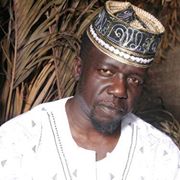Benedicto Kagimu Kiwanuka is remembered as the first prime minister of Uganda, a leader of the Democratic Party, and one of the persons that led the country in the transition between colonial rule and independence.
He is also known as one of many Ugandans who suffered the brunt of a dictatorship; a victim of Uganda’s political upheavals in the 70’s joining a list of other countless Ugandans whose lives remain unaccounted for up to date.
Manuscripts and writings from both local and international authors recount that Ben Kiwanuka –a prominent citizen at a position of the Chief justice was arrested on 24th September 1972, dragged from his chambers at the High Court in Kampala, and whisked away in broad daylight by state agents never to be seen again.
A memorial lecture graced by prominent Ugandans has been organized twice this and last year in September, in memory of Ben Kagimu Mugumba Kiwanuka the man whose legacy cuts across the legal fraternity and the political arena in Uganda.
47 years after Ben Kiwanuka’s death, Lumumba Hussein Amin, son of Uganda’s former leader is coming out to challenge this piece of history.
In his articles published on a personal blog site ugandansatheart.blogspot.com, Lumumba contends that contrary to what history says, Ben Kiwanuka’s demise was a result of political grudges that existed at the time, and enemies driven by hunger for power might have possibly eliminated him at the earliest opportunity.
Lumumba says, at the time of his abduction Ben Kiwanuka had been appointed to a senior position of a country’s Chief Justice by Idi Amin, and his disappearance also happened a few weeks after he had been designated by President Amin as the person who would be the next president of Uganda.
At that time, Lumumba says back-stage discussions were in high gear for the military to return the country to civilian rule as had been promised by Idi Amin after the 1971 military take-over. He says what was being awaited was a formal announcement and therefore, there could be no reason for Idi Amin to harbor ill intentions against Ben Kiwanuka.
Suffice to note he says is that Ben Kiwanuka was among 51 political prisoners that Idi Amin had freed from political detention by the Milton Obote government which had deposed at the time of his demise.
He says the political prisoners freed by Amin after the 1971 takeover became legitimate targets for anti-Amin elements that were operating within and outside Uganda.
Lumumba asserts that several of these freed political prisoners started disappearing mysteriously immediately after the 1972 invasion by Obote’s forces and sympathizers who had lost power together with their leader sent into exile.
He says seeing Ben Kiwanuka their political rival since the September 1961 stint at Chief Ministry position in the pre-independence government of Uganda, rise to high positions in Amin’s government, is something Obote and his sympathizers could not stomach.
He says in 1972 these political grudges were known to all Ugandans, and one man who wished death to everyone in Amin’s government was Apollo Militon Obote the leader Amin had deposed from power a few months ago.
Lumumba’s assertions fairly coincide with a period when Amin’s government repulsed an invasion from Tanzania by Ugandans on September 17th, 1972. He says the invaders had a list of prominent officials in Amin’s government, and several Ugandan elites that were supporting Idi Amin as legitimate targets for assassination.
Besides Ben Kiwanuka’s death, Lumumba also lashes out at Conrad Nkutu for tarnishing Idi Amin as a murderer in the case of Shaban Nkuttu’s death (Conrad’s father). He says it is his father who offered Shaban Nkutu a job in government, but his health failed due to untold torture he suffered in dungeons under Obote’s dictatorship.
He said he is amazed to see Mzee Nkutu’s own son whose father willingly asked to be discharged from hospital where he was receiving specialized treatment on Amin’s orders, turn around to claim his father was murdered by Amin just to get favors from the NRM government. He says Shaban Nkutu died peacefully at his home in Jinja surrounded by his family.
He also notes that weeks before Ben Kiwanuka’s disappearance, Obote’s rebels had started abducting prominent Ugandans in Amin’s government which prompted his father to allocate security guards to Shaban Nkutu and other prominent Ugandans. Some of these guards testify to this.
Regarding Archibishop Janan Luwum’s death, Lumuba Amin has no kind words for the late archbishop who he says stood for treachery and for using the “innocent church” to reinstate Obote with whom he shared ethnicity into power. He accuses Janan Luwum of using premises of the Anglican Church to hide truckloads of weapons belonging to Obote.
He further criticizes the Luwum Day which is commemorated every year in Uganda on 16th February as a ceremony for political cronies associated to Uganda People’s Congress (UPC) the party that Milton Obote led until his death in 2005.
He says contrary to written and spoken narratives about Archbishop Luwum’s death, the archbishop died at the hands of Sergeant Moses Okello who claimed that Janan Luwum attempted to strangle him and flee as he was being driven together with the co-accused back to his church residence after a public meeting where incriminating evidence of weapons had been put on display to all foreign ambassadors at Nile Hotel complex on the afternoon of 16th February 1977.
In our next series, we bring you the actors in the failed 1972 Invasion from Tanzania, and an exclusive interview with Henry Kyemba a person who closely served under both Milton Obote and Idi Amin in 60’s and 70’s.
